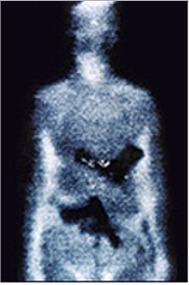Wed, May 05, 2004
Measures Include Biometrics And RFID
 The TSA says eight airports have
been selected to participate in TSA's Access Control Pilot Program
which will test Radio Frequency Identification (RFID) technology,
Anti-Piggybacking technology, advanced video surveillance
technology and various biometric technologies. The airports
are:
The TSA says eight airports have
been selected to participate in TSA's Access Control Pilot Program
which will test Radio Frequency Identification (RFID) technology,
Anti-Piggybacking technology, advanced video surveillance
technology and various biometric technologies. The airports
are:
- Boise Air Terminal/Gowen Field Airport (BOI), Boise
(ID)
- Miami International Airport (MIA), Miami (FL)
- Minneapolis-St. Paul International Airport (MSP), Minneapolis
(MN)
- Newark International Airport (EWR), Newark (NJ)
- Savannah International Airport (SAV), Savannah (GA)
- Southwest Florida International Airport (RSW), Ft. Myers
(FL)
- T.F. Green State Airport (PVD), Providence (RI)
- Tampa International Airport (TPA), Tampa (FL)
"This pilot program will test new technologies designed to
ensure that only authorized personnel have access to non-passenger
controlled areas," Stone said. "TSA believes that this cutting edge
technology will enhance the security of the aviation system and
keep us one step ahead of those who seek to harm us."
 Below is a description of technology
projects to monitor and control authorized access:
Below is a description of technology
projects to monitor and control authorized access:
- Boise Air Terminal/Gowen Field Airport will
test a system that combines fingerprint biometric and Radio
Frequency Identification (RFID) technology to control vehicle
access.
- Miami International Airport will test a new
defense system that will incorporate intelligent video analysis and
other technology to detect intruders at the perimeter.
- Minneapolis-St. Paul International Airport
will demonstrate a detection system using intelligent video
analysis to differentiate between persons who are authorized and
not authorized access to secured areas of the airport.
- Newark International Airport will test a
system using fingerprint biometric technology to allow only
authorized persons in secure areas of the airport.
- Savannah International Airport will focus on
intelligent video surveillance technology to allow only authorized
personnel to operate a cargo elevator that provides access to
secure areas of the airport.
- Southwest Florida International Airport will
evaluate new RFID and wireless fingerprint biometric technology
intended to enhance the level of security at a vehicle gate.
- T. F. Green State Airport will focus on
controlling access to a secure area via an iris biometric
recognition system. In addition, the entrance will employ
anti-piggy backing detection (stopping more than one vehicle from
gaining entrance at a time).
- Tampa International Airport will test the
viability of portable card readers and fingerprint recognition
technology at a vehicle gate.
 TSA has developed a two-phase pilot
program starting with Phase I, including these initial eight
airports testing various off-the-shelf biometric technologies under
a variety of real-world operational environments in an effort to
provide unbiased evaluations of their suitability of use. Based on
that analysis, TSA will then determine which technologies will be
evaluated in the Phase II airports. Information gathered during
these pilot projects will be made available to appropriate industry
representatives so that they may make informed decisions when
designing access control systems to meet their security and
regulatory needs.
TSA has developed a two-phase pilot
program starting with Phase I, including these initial eight
airports testing various off-the-shelf biometric technologies under
a variety of real-world operational environments in an effort to
provide unbiased evaluations of their suitability of use. Based on
that analysis, TSA will then determine which technologies will be
evaluated in the Phase II airports. Information gathered during
these pilot projects will be made available to appropriate industry
representatives so that they may make informed decisions when
designing access control systems to meet their security and
regulatory needs.
In October 2003, TSA awarded a contract to Unisys to be the
systems integrator for the pilot program. The contract has a
maximum government obligation of $17 million over 20 months.
The Aviation and Transportation Security Act (ATSA) mandated
that the "Administrator shall establish pilot programs in no fewer
than 20 airports to test and evaluate new and emerging technology
for providing access control and other security protections for
closed or secure areas of the airports. Such technology may include
biometric or other technology that ensures only authorized access
to secure areas.
More News
From 2023 (YouTube Edition): "Ain’t Your Daddy’s Super Cub”—Don Wade Co-owned by Don and Ron Wade—the former of Don’s Dream Machines, a storied >[...]
Pilot-Rated Passenger Reported That The Pilot Did Not Adequately “Round Out” The Landing Flare And The Airplane Bounced And Yawed To The Right Analysis: The pilot state>[...]
Dead Reckoning Dead reckoning, as applied to flying, is the navigation of an airplane solely by means of computations based on airspeed, course, heading, wind direction, and speed,>[...]
Aero Linx: Lake Amphibian Club This website is created and sponsored by the Lake Amphibian Club, to help spread the word about these wonderful, versatile amphibians that can land j>[...]
“I am deeply honored to be sworn in as NASA administrator. NASA’s mission is as imperative and urgent as ever — to push the boundaries of human exploration, ignit>[...]
 Classic Aero-TV: In Praise of Alabamas Patriot Aircraft USA
Classic Aero-TV: In Praise of Alabamas Patriot Aircraft USA NTSB Final Report: Cirrus Design Corp SR22
NTSB Final Report: Cirrus Design Corp SR22 ANN's Daily Aero-Term (12.21.25): Dead Reckoning
ANN's Daily Aero-Term (12.21.25): Dead Reckoning ANN's Daily Aero-Linx (12.21.25)
ANN's Daily Aero-Linx (12.21.25) Aero-News: Quote of the Day (12.21.25)
Aero-News: Quote of the Day (12.21.25)





